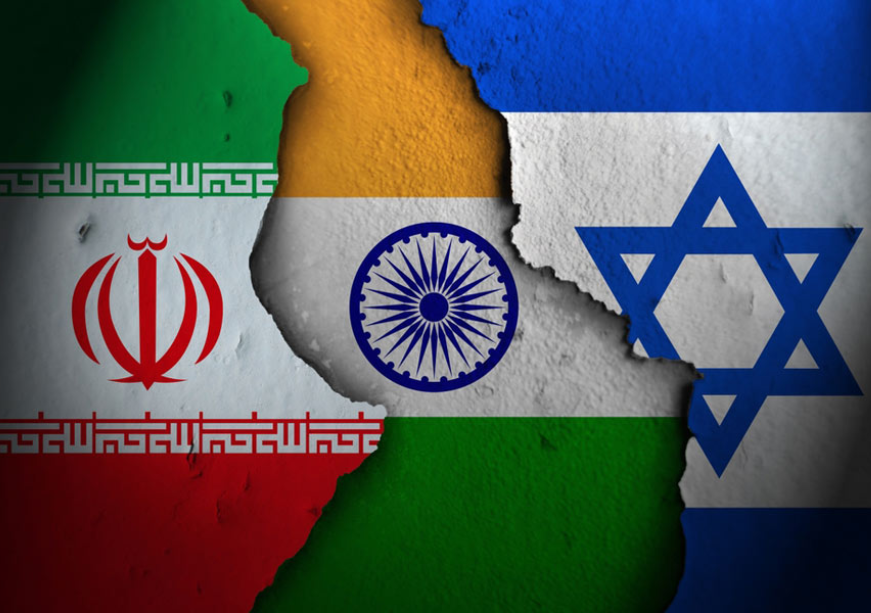Israel-Iran War: How the Conflict Could Impact India’s Oil, Trade, and Internet
Israel-Iran Conflict: Which Indian Industry Will Be Affected: Crisil Ratings has said in its new report that the ongoing conflict between Israel and Iran has not had any significant impact on the global trade of Indian corporates so far (Israel-Iran conflict impact). However, if the situation worsens in the coming times and uncertainty increases, some industry sectors may come under its grip (Indian industries affected). However, this impact will be different on different sectors. In this news, we will know what impact it will have on which sector.
The report said that India’s direct trade with Israel and Iran is not much. India’s main export to Iran is Basmati rice, while a variety of goods are traded with Israel. These include fertilizers, diamonds, and electrical equipment etc.
Increasing uncertainty in the Middle East can lead to disruption in the energy supply. Specialty chemicals, paints, aviation, and tyre sectors can also feel its impact. Sectors like fertilisers and diamonds can also be affected by this. If the uncertainty persists for a long time, the cost of air and sea freight and insurance premiums for exports and imports may increase.
Iran-Israel War: What will be the impact on which sector in India?
- Oil: A significant increase in crude oil prices will have different impacts on different sectors, either directly or indirectly. Higher oil prices will benefit upstream oil companies as they will get more revenue while their costs remain the same. Rising costs for downstream companies that refine crude oil may reduce their operating margins as their ability to raise retail fuel prices is limited.
- Basmati: India exported 14% of its basmati rice to Iran and Israel in FY25. But since basmati is a staple food grain, the impact on its demand will be limited. The risk is also low given India’s ability to export to other Middle East countries, the US, and Europe. But if the crisis continues for a long time, there may be a delay in payments from the countries in the affected region.
- Diamonds: Israel is primarily a trading hub for diamond polishers in India. About 4% of India’s total diamond exports last fiscal went to Israel. In addition, about 2% of rough diamonds are imported from Israel. Polishers also have alternative trading centres like Belgium and the United Arab Emirates (UAE). Their end buyers are in the US and Europe, which will help mitigate any adverse impact on the sector.
- Fertilizer: Israel is a major producer of muriate of potash (MoP). In the last financial year, India imported about 7% of MoP from Israel. However, the share of MoP in India’s fertilizer consumption is less than 10%. India also has the option of buying MoP from other countries. Therefore, the risk for India is low in this too.
- Chemicals: About 30% of the operating costs of specialty chemical companies are linked to crude oil. Their ability to pass on the increase in input costs to customers will also be limited. This sector has been facing continuous dumping from China for the last two financial years. There is also a problem of a lack of demand. This sector has recently started returning to normal.
- Paint: The paint sector may see some pressure on margins, as about 30% of its production cost is linked to crude oil. Due to competition, companies cannot increase product prices following the increase in input costs. This will affect their profitability to some extent.
- Aviation: Fuel accounts for 35 to 40 percent of the operating expenses of airlines. This cost will also increase if fuel becomes expensive. Apart from this, the increase in travel time due to airspace closure or diversion will also increase the fuel cost of airlines. However, due to good demand, their margins are unlikely to fall much.
- Tyres: Nearly half of the tyre sector’s operating costs are linked to crude oil. 60-65% of the sector’s business comes from the replacement market and the rest from car manufacturers. Tyre companies can easily increase prices in the replacement market, but it takes time for car companies to pass on the cost increase. During this time, their margins are likely to be affected.
- Packaging: 70-80% of the production cost of packaging and synthetic textile firms is linked to crude oil. Given the better demand-supply situation, it will be relatively easy for them to pass on the cost to the customers, although this may take some time.
Overall, the immediate impact on most Indian companies is expected to be limited due to their strong balance sheets. But if the war situation continues for a long time, the impact may increase due to an increase in oil prices and disruption in the supply chain. This will also increase inflation.
ALSO READ: What is the salary of a SPG commando





